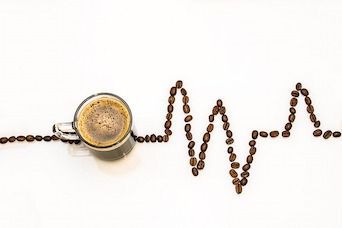How Much Caffeine Do You Really Need?
Imagine a world where you knew exactly how much coffee you needed to reach super-veterinarian status. There might soon be an app for that.

On average, Americans consume 400 million cups of coffee per day, which makes the U.S. the leading consumer of coffee in the world. But before you reach for your next cup — be it your second, third or 10th — have you considered how much caffeine your body really needs to reach its optimum level of performance?
Rather than applying a general rule to all people, Army researchers have developed an equation that essentially creates a personalized caffeine consumption schedule.
In an article recently published in the Journal of Sleep Research, investigators discussed the effectiveness of an algorithm developed to identify safe and effective caffeine-dosing strategies to maximize alertness under any sleep-loss condition.
RELATED:
- Best Cities for Coffee Lovers
- Can You Catch Up on Sleep?
How It Works
The study used a mathematical model to predict the effects of sleep loss and caffeine on task performance and combined it with an optimization algorithm to determine how much caffeine a person should consume to safely maximize alertness when suffering from sleep loss.
To use the algorithm, an individual inputs information about their sleep schedule and the amount of caffeine they normally consume, or the maximum amount they’d like to consume. Using those inputs, the algorithm tells them how much caffeine to drink and when.
"We found that by using our algorithm, which determines when and how much caffeine a subject should consume, we can improve alertness by up to 64 percent while consuming the same total amount of caffeine," said Jaques Reifman, PhD, principal investigator and author of the study. "Alternatively, a subject can reduce caffeine consumption by up to 65 percent and still achieve equivalent improvements in alertness."
Coming to an App Store Near You?
Believe it or not, the purpose of this algorithm wasn’t to help veterinarians stay alert for back-to-back appointments. Instead, Dr. Reifman is a senior research scientist at the U.S. Army Medical Research and Materiel Command in Ft. Detrick, Maryland and his team’s work is being used to benefit soldiers in training.
But now that the algorithm exists, and has been vetted, it’s only a matter of time until the mathematics behind the model makes its way to your smartphone.